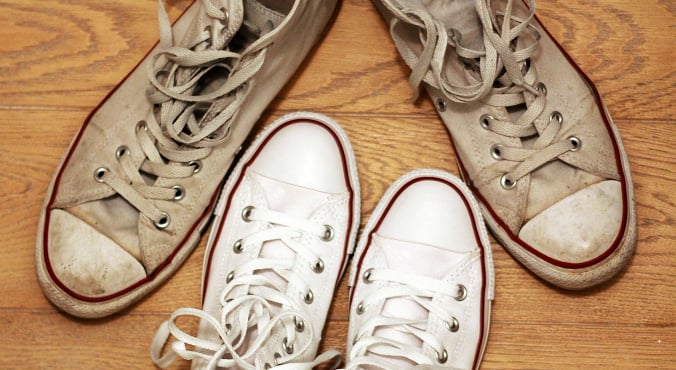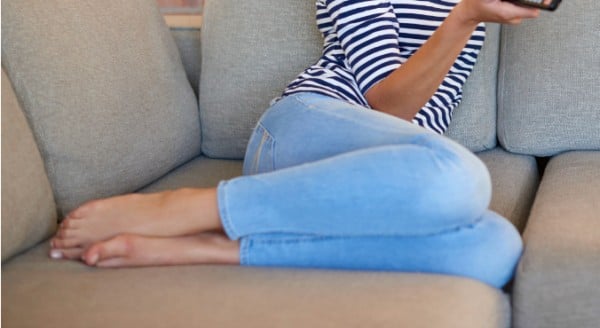
Image: iStock
In his Good Weekend column earlier this year, Benjamin Law addressed the topic of germs. Specifically, the gross places and things we put our shoes through — and then happily tread through the house, let the dog lick, put up on the bed, etc.
For some of us, the thought has probably never our minds. Yet for others, like Law’s mum, there are strict preventative regulations in place.
“Like all Chinese households, we grew up in a no-shoes-indoors family. If you enter any Asian dwelling with your shoes on, I can assure you that everyone there will silently judge you, and regard you as they would some disgusting garbage animal,” writes Law.
There are certainly some disgusting findings to back this up. A 2008 study by the University of Arizona examined 26 pairs of shoes and found an average of over 400,000 bacteria across nine different strains. One of these was E-coli, which can cause vomiting and bloody diarrhoea — and it was detected on more than a quarter of the tested shoes.
Delightful.
Watch The Glow team share their office passive-aggressive reminders about gross habits. (Post continues after video.)

